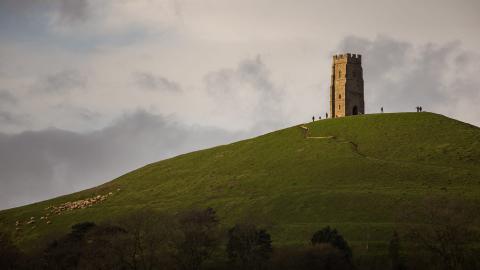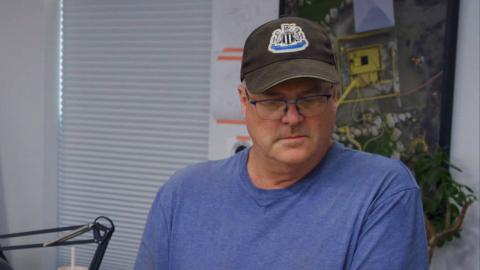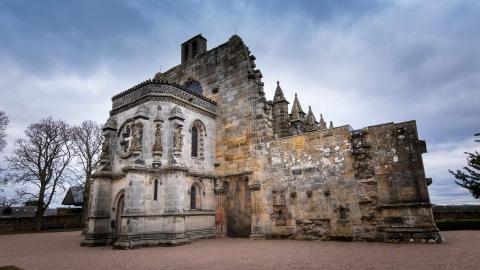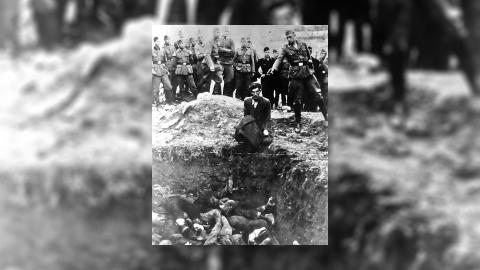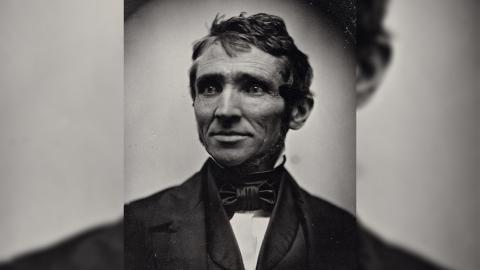Lord Leverhulme: Biography
William Lever built Britain’s largest company and in so doing, made the first modern multinational. And unlike the US Robber Barons, for Lord Leverhulme his British workers' welfare was as important as his wealth. But this didn't extend to his African workers, with fatal consequences.
William Hesketh Lever is born on 19 September 1851. After six daughters, his father’s happy he finally has someone to inherit his successful Bolton based grocery business. William’s brother, James Darcy Lever, joins the family three years later. Unlike the robust William, James will suffer from ill health throughout his short life.
Aged 16, William leaves school and joins the family business. In 1874, he marries. His wife, Elizabeth Hulme, not only lived on the same street as him, but attended the same church. The Congregationalist Church infuses him with many of the ideals he will make real with his business empire. The couple will have a number of children, but only one, also called William, will survive.
In 1885, the brothers enter the soap business by buying a small soap and cleaning product works in Warrington. Lever Brothers is born.
HONEY SOAP
They partner up with William Hough Watson, a chemist from their home town. His newly invented soap uses a colonial raw product, palm oil, and glycerine rather than tallow. It’s a free-lathering soap first named ‘Honey’ and then ‘Sunlight Soap’. Thanks to William’s marketing acumen, within a decade of its launch it is on sale in 134 countries. By 1888, they’re producing 450 tonnes. Business is good. Five years after moving into the village of Thornton Hough, William buys the manor there. Next, he’ll buy the village.
PORT SUNLIGHT
Needing larger business premises, William purchases 56 acres of land in Cheshire. He builds on marshes and creates Port Sunlight. The model village is developed between 1888 and 1914.
“Some 30 architects were commissioned to create a complete ‘garden’ village in what was unapologetically called the ‘old English’ style”
Simon Schama, A History of Britain
Two cottages are built as exact reproductions of the farmhouse of William Shakespeare’s wife, Anne Hathaway. At a time when urban poverty and overcrowded slums are endemic, William has Jacobean-Flemish gables, exposed timbering and leaded windows in country cottages for his workers. As with the model village of Cadbury’s, Bourneville, the cottages have their own running water and unlike some at Bourneville, all have indoor bathrooms.
Schools are built to educate 500 children. For women and girls, special classes are offered in cooking, dressmaking and shorthand. By 1909, there are 700 cottages, a concert hall and theatre, a library, a gymnasium and an open air swimming pool. Rents are one fifth of the weekly wage.
However, this largesse comes with conditions. William demands observance of strict ethical codes. Breaking them can mean losing your job. And as the cottages are tied to employment, losing your job means losing the roof over your head. William makes many social activities compulsory in his village.
During this remarkable development James is felled by a bout of illness and resigns his directorship. Massively successful products such as ‘Lifebuoy’, ‘Lux’ and ‘Vim’ are launched and subsidiaries are set up in the United States, Switzerland, Canada, Australia and Germany. The Port Sunlight plant alone produces 5,000 tonnes of soap a week.
NO TRUST PLEASE: WE’RE BRITISH
In 1906 copying the trust set up by the American Robber Barons like JP Morgan, Rockefeller and Carnegie, William creates a soap monopoly. But the British have seen how the Robber Barons virtually run their country according to their whims. A press campaign by the Daily Mail orchestrates a consumer boycott. There is such a colossal loss in sales and shareholder value that William abandons the idea within just four months of its creation.
LORD LEVERHULME
The same year and somewhat more successfully, William stands for and is elected as a Member of Parliament for the Liberal Party in the Wirral constituency. In his maiden speech he urges the government to copy the old age pension plans he’s set up for his workers. He will go onto become a baronet, a Lord and even a High Sheriff. The ‘Hulme’ part of his name is added in honour of his wife. Combining his family name with that of his wife’s is at his insistence and is against all precedents.
AFRICAN ATROCITIES
In 1911, he travels to the Belgian Congo to establish palm oil plantations. Some estimates put the death toll of Belgian control there at 10 million. Lever requests 750,000 hectares from the Belgium rulers. The Lever plantations that are set up use forced labour. Though not technically slavery, the semantic difference means little to the many Africans that died because of horrific working conditions. In his defence, Lord Leverhulme did attempt to build African village versions of Port Sunlight for his own employees. But beatings and squalid conditions are the daily reality for many of the African workers.
SPIRIT OF SOAP
Back in Britain, he’s a benefactor to many, but his hometown of Bolton receives the most. Bolton’s largest park is created on land donated by him in 1914.
From 1918 on, he spends around a million pounds in an attempt to transform the Isle of Lewis, an island off the west coast of Scotland, but local opposition slowly sinks his vision. It’s a hugely costly diversion from his core business.
On returning from a trip to Africa, Lord Leverhulme goes down with pneumonia. Having spent the later years of his life in London, aged 74, he ends his days there. His funeral is attended by 30,000 mourners. He had ridden the Victorian consumer revolution to build a vast worldwide industrial empire.
By 1930, it’s employing 250,000 people and in terms of market value, is the largest company in Britain.
That year, it merges with a Dutch company, Margarine Unie, to form Unilever, arguably the first modern multinational company.


